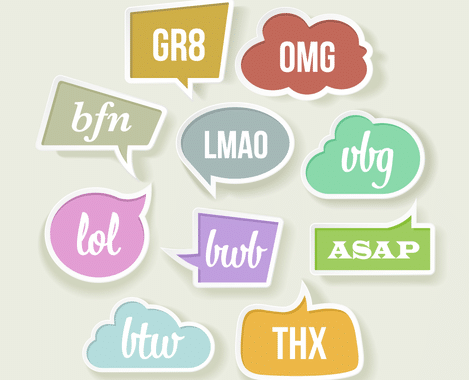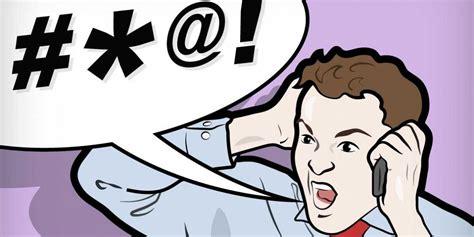在谈话中运用英语俚语,甚至脏话,是很难把握的;尤其是在职业场景中。真的有确实适合使用俚语和脏话的英文会话场景吗?其实如果合理运用,两者都可以帮助交流变得更高效。
举个例子,托尼罗宾斯是世界著名的励志演讲家。他曾为顶级企业领袖和CEO做过教练。他在各种讲座中对俚语和脏字的频繁使用震惊过很多人。但对他来说,这却是非常有效的技巧。为什么?因为用这样的语言使他显得平易近人,接近观众。罗宾斯喜欢让听众措手不及,借此让他们准备好接受改变;而语言是实现这一点的手段之一。
与此同时,我也见过其他演讲者使用俚语和脏话,造成了和罗宾斯相反的效果。他们用很短时间就疏远了观众。在商务演讲和会议中,这经常发生。
下面五条建议告诉你,如何在练习说职业英语的时候使用俚语或脏话。

建议1:了解你的词汇表
俚语是一整套独特的需要专门学习的词汇体系。每个世代都有不同的俚语。年长的人会用“cool”或“groovy”形容一次很棒的聚会。下个世代的人会用“rad”和“awesome”这样的词。而今天的年轻人会说,“That party was lit!”脏字也是这样。每个世代都用不同的脏话。
建议2:了解你的听众
这是个关键。我们和孩子说话时,从来不会说成人语言或复杂的词汇。它们和谈话无关,而且孩子也听不懂。和职场人士对话也要这样。永远想着你的听众。如果有必要,提前做些功课。一个不错的技巧是,开始一段时间先不说话,通过倾听收集信息。
建议3:看老板怎么做
一个雇员用了一些非正式,不太正经的词汇,不意味着每个人都应该这么做。我喜欢观察房间里有最高权威的人,比如公司老总。如果老板说了些俚语,我也会做相同程度的使用。如果老板喜欢说脏字,我也会偶尔说点脏话从而建立关系。(我不喜欢常说脏话,但我发现在特定场合它们是有用的。)
建议4:做个测试,然后观察
有时,我会用一个俚语词汇,或者脏字,来吸引注意。但我会谨慎地先试验一下。我会尝试先说一点冒险的内容,看人们如何反应。如果他们乐了,我就知道在时机合适时可以说点更激烈。如果人们显得很厌恶或很惊恐,我会赶紧道歉。如果我没看到任何反应,我一般会保持职业语言。
建议5:用适合你的语言
如果我直接用我青春期儿子使用的俚语,我只会显得很傻。你不能过于刻意地用俚语和脏字吸引关注。一定要用适合你自已的语言,呈现真实的自我。
请往下拉阅读Ed亲笔的英文原文。

Should Use Slang or Swear Words When Speaking Professional English?
Using English slangs or swearing during a conversation can be tricky, especially in a professional situation. Is there ever an appropriate time to use slang or swear when speaking English? The truth is, both can be an effective way to communicate if used properly.
For example, Tony Robbins is a world-renowned motivational speaker. He has coached the top leaders and CEOs in business. Many are surprised then, of how much slang and swear words he uses during his seminars. But in his case, it is highly effective. Why? Because using that type of language makes him more approachable and relatable to his audience. He likes to surprise people to get them ready for transformation and knows that language is one way to do it.
At the same time, I have seen other speakers use slangs and swearing to the opposite effect of Tony Robbins. They quickly alienate their audience. This also happens during business presentations and meetings.
Here are five tips to follow to understand how to use slang or swear when learning to speak professional English.
Tip 1: Know Your Vocabulary
Slang is a whole other form of vocabulary to learn. Slang also changes from generation to generation. Older people might say a party is, “cool” or “groovy” when it is great. This has changed into words like “rad” and “awesome” for the next generation. Today, young people will say, “That party was lit!” The same applies for swear words. Swears have changed from generation to generation.
Tip 2: Know Your Audience
This is essential. When we speak to children, we never use adult language or complicated vocabulary. This would be irrelevant, and they wouldn’t understand anyway. It is the same with business professionals. Always keep your audience in mind. If necessary, do some upfront research. A good technique is to say nothing for a while and just listen to gather information.
Tip 3: Follow What the Boss Does
Just because an employee uses casual and colorful language, it does not mean everybody should. I always like to observe the person with the highest authority in the room, like the boss. If the boss uses slang, I will use it at the same level. If the boss likes to swear, I will sometimes swear as well to build a connection. (I don’t like to swear a lot, but I do find it effective for certain situations.)
Tip 4: Try a Test and Observe
Sometimes, I will use a slang term or swear to get attention. But I am careful to test it out first. I will try and say something a little risky and see how people react. If they smile, I know to increase the level of intensity when appropriate. If people look disgusted or horrified, I will quickly apologize. If I get no reaction at all, I typically will stay with professional language.
Tip 5: Use What Fits You
If I started to use the exact slangs my teenage sons use, I would simply look foolish. You never want to look like you are trying too hard to impress people with slang or swear words. Make sure to use the language that fits you and stay true to yourself.

